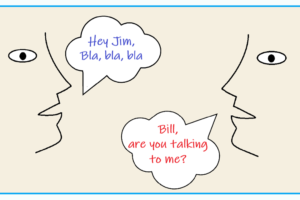Self-Esteem vs. Confidence
Self-esteem and confidence are two words that are frequently interchanged but have different definitions.
Self-Esteem
Self-esteem is who you are, how you see yourself on the inside. Self-esteem is not visible to others. It is what you appreciate and value within yourself.
Your self-esteem frequently dictates the way you interact with others, the decisions you make and the people you choose to surround you. Self-esteem is a frame of mind that lets you celebrate your strengths, challenge your weaknesses, and lets you feel good about yourself and your life.
Individuals with high self-esteem are accepting of themselves and others. They do not need to impress others by flaunting their income, wealth, or status. They are not individuals who fear failure or rejection from others. Their success comes from within themselves. They are open to experiences, tolerant of risk. A person with high self-esteem is open to different ideas and is comfortable in most social settings.
Your self-esteem may change as a result of your life experiences and interactions with other people. It is possible for you to improve and build your self-esteem.
No one else can build your self-esteem. No one else can make you feel better about yourself. It is something you must do yourself.
Confidence is very different from self-esteem. Sadly, because it is easier, people will work more on their confidence (outward appearance) by increasing their skills rather than working on their self-esteem (how they feel inwardly about themselves).
Confidence
Others will see your confidence. Confidence is what you project to others. When you have confidence, you trust yourself to achieve goals and to succeed in life. By practice, you can become proficient at a task, job, or skill. The more experience you have, the more confident you can become.
You may work very hard at obtaining an outward appearance of success, for example, gaining money, wealth, and possessions. You project confidence to the world, but you may feel like a “failure” on the inside.
Confidence isn’t about feeling superior to others. That is arrogance.
People with confidence don’t pass judgment on others. This is because they know that everyone has something to offer. People with confidence don’t need to put other people down in order to feel good about themselves.
Someone with a high level of confidence may be more willing to take risks. You are more willing to get outside of your comfort zone because anxiety is not paralyzing you. You can be the best version of you.
| Your self-esteem is not visible to others. It is how you feel about yourself. Confidence is visible to others. It is about your abilities and outward successes. |
There is no one else to blame for how you feel about yourself. You choose your own self-talk.
Combinations
There are many combinations of having self-esteem and confidence:
High Self-Esteem, High Confidence
Someone who has high self-esteem and a high level of confidence feels good about themselves and their abilities. They tend to be people with good problem-solving skills and an attitude of “I’ve got this!”
Example: Kristina has decided she wants to put in for a promotion at work. She knows she has the skills necessary for the job (high confidence). She knows if she doesn’t get the promotion, it is likely there will be a better opportunity coming up very soon (high self-esteem).
High Self-Esteem, Low Confidence
Someone who has high self-esteem, but a low level of confidence, feels good about themselves, but doubts their abilities. This is a person who may be a “jack of all trades and a master of none.” They are content with who they are. They probably do not have great aspirations.
Example: Liam has been working for a big box store for over ten years. His supervisors have frequently suggested he apply for leadership openings, but he has always declined them. He is content (high self-esteem) with working directly with customers and doubts (low confidence) that he would be good at managing staff and making out schedules.
High Confidence, Low Self-Esteem
Someone who has high confidence and low self-esteem feels good about their abilities (high confidence), but may feel like a fraud or an imposter on the inside (low self-esteem).
Example: Thomas is the person on the basketball team that always seems to make the big play at the end of the game. He is the one who can make that three-pointer to win the game (high confidence)! But off the court, he questions if people like him for who is instead of what he does on the court and how much money he makes (low self-esteem).
Take Away Point
Understanding the difference between self-esteem and confidence is important. What you see on the outside isn’t necessarily what you see on the inside of any individual. Some of the most arrogant people, who are seemingly confident, are actually people who ooze of self-doubt and low self-esteem on the inside. You may never know who someone is from their outward persona!
No content in this blog is created by AI (artificial intelligence). The information presented is the perspective of the author and material amassed from 40+ years as a clinical social worker.
With warmest regards,
Thank you so much for reading this blog. If you enjoyed the content, please check out other blogs at:
https://relationshipsrelearned.com/my-blog/
https://rvingnomads.com/blog/
You can view my available books on my Amazon Authors Page or go to the books tab at the top of this page
To be notified of future posts, please enter your email address and click on the Subscribe button.











